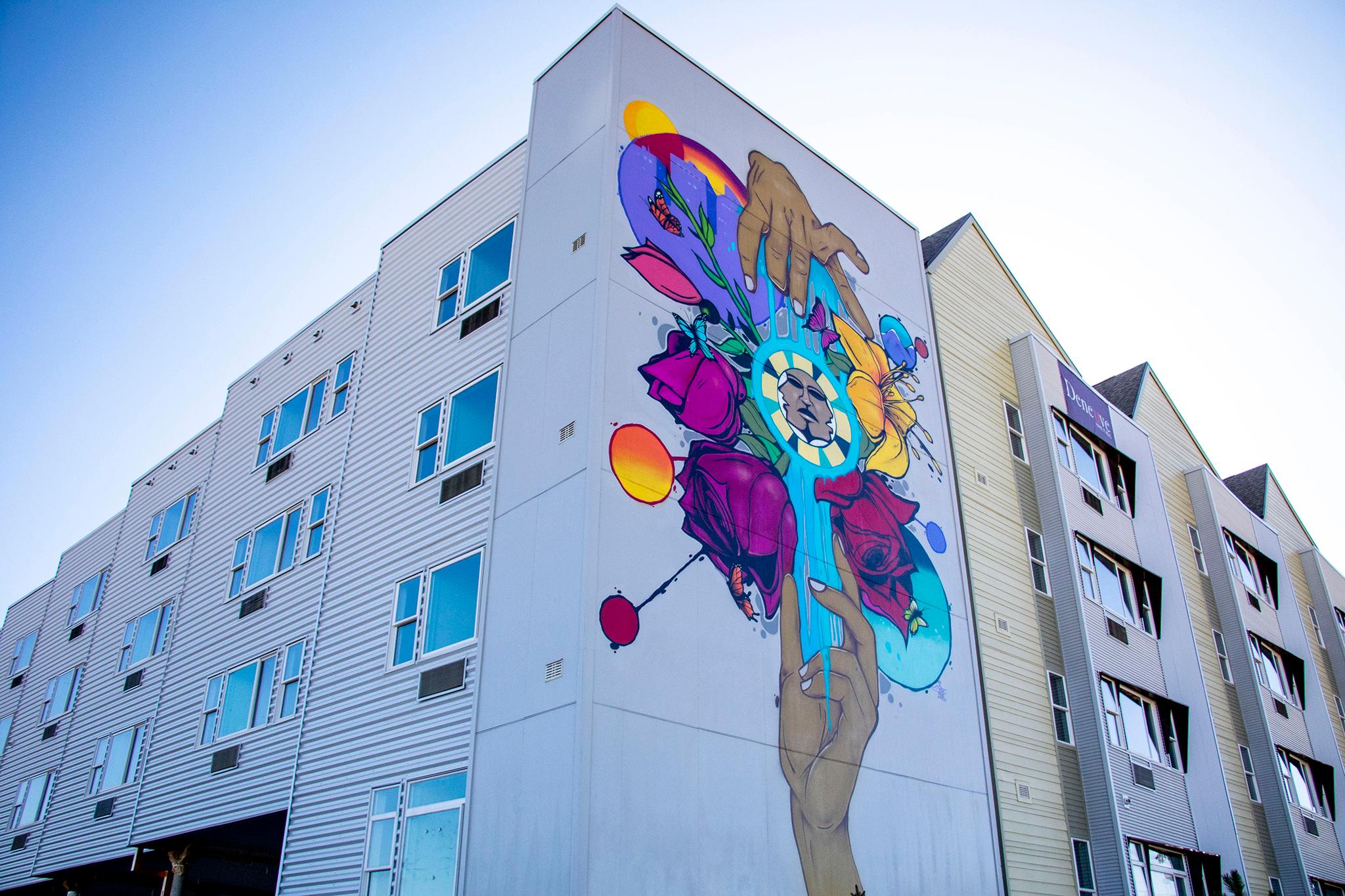The leader of a 72-year-old Denver institution sees his community as both the children and adults with intellectual and developmental disabilities he trains and their family and neighbors in Globeville and beyond.
And Laradon CEO Douglas McNeill sees the housing crisis as a concern they all share.
Homes that people at all incomes can afford are "one of the most acute community needs," McNeill said before a tour of the first stage of a subsidized housing complex being built on what had been an unused lot taking up 40 percent of Laradon's property at 51st and Lincoln.
"We're just opening up more affordable housing to the community, and part of the community is people we serve," he said. "Housing is an important support, actually, for any population. That's why it's important to us."

The first tenants are expected to move in by year's end, with leasing handled by Ross Management Group. City Council, meanwhile, is taking up a proposal next week to help finance the second and final phase of home construction on the 4-acre plot across Lincoln Street from the six-acre campus where Laradon provides classes for infants, employment training for adults and a range of other programs. Every day, 700 adults and children come to Laradon.
The first phase of housing includes The Elisabetta, a four-story apartment building with community space on the ground floor where Laradon will operate some adult day programs. The Elisabetta was named for Laradon co-founder Elizabeth Calabrese. Elizabeth and Joseph Calabrese used their life savings in 1948 to open a school for children with developmental disabilities. The couple had been unable to find another way to educate their disabled sons Larry and Donald -- from which the name Laradon is derived.
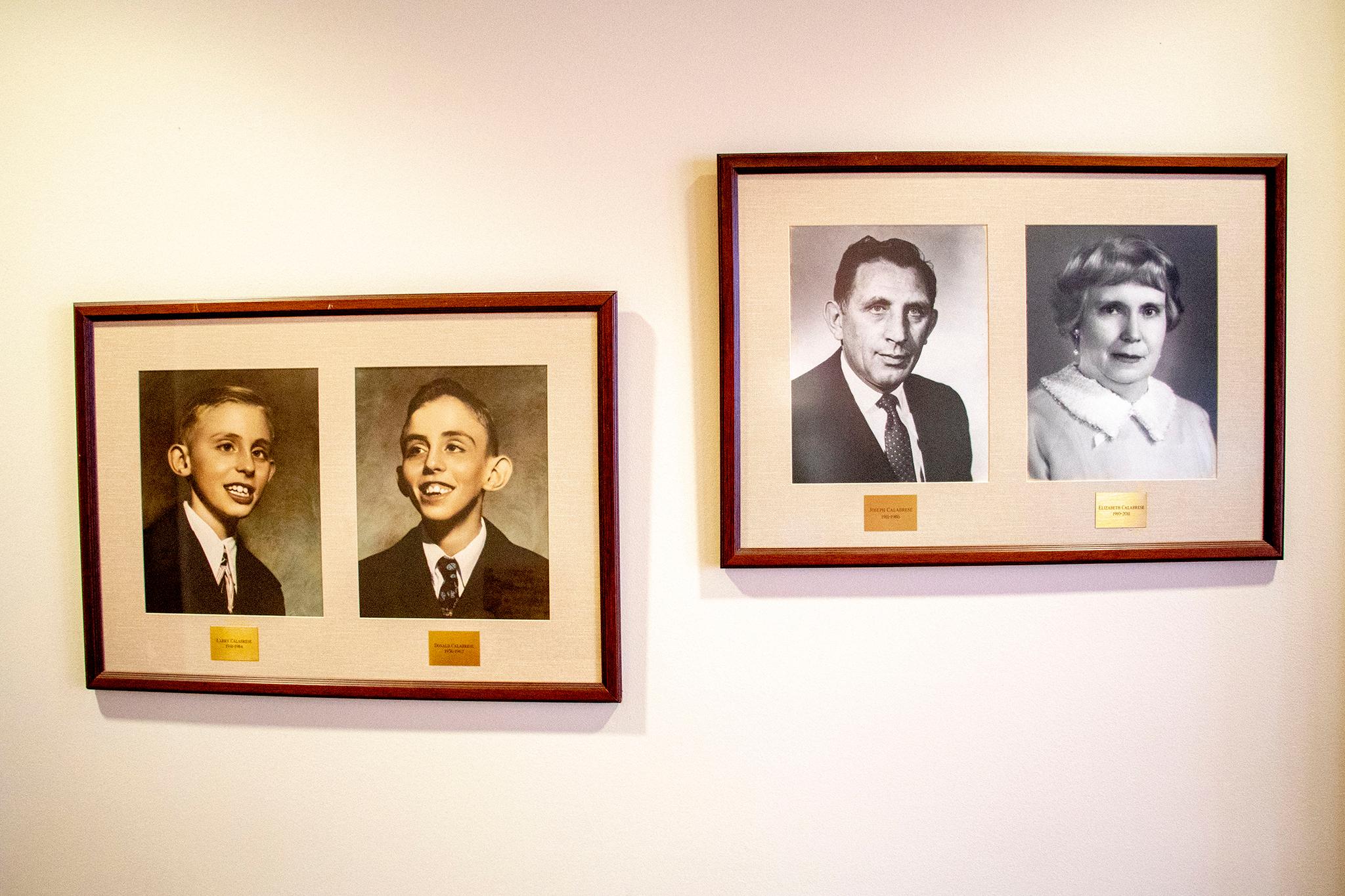
The Elisabetta has 91 light-filled one-, two- and three-bedroom apartments in a building designed by Shopworks Architecture and adorned with murals by Globeville's own Jolt. The homes are restricted to households earning up to 60 percent of the area median income. Twenty-two have been set aside for tenants with federally funded housing vouchers for people with disabilities earning no more than 30 percent AMI. Laradon staff are expected to be among the tenants.
Elisabetta's halls and doorways are wide, ready to accommodate tenants whose disabilities may affect their mobility. Spacious storage closets are equipped with bike racks.
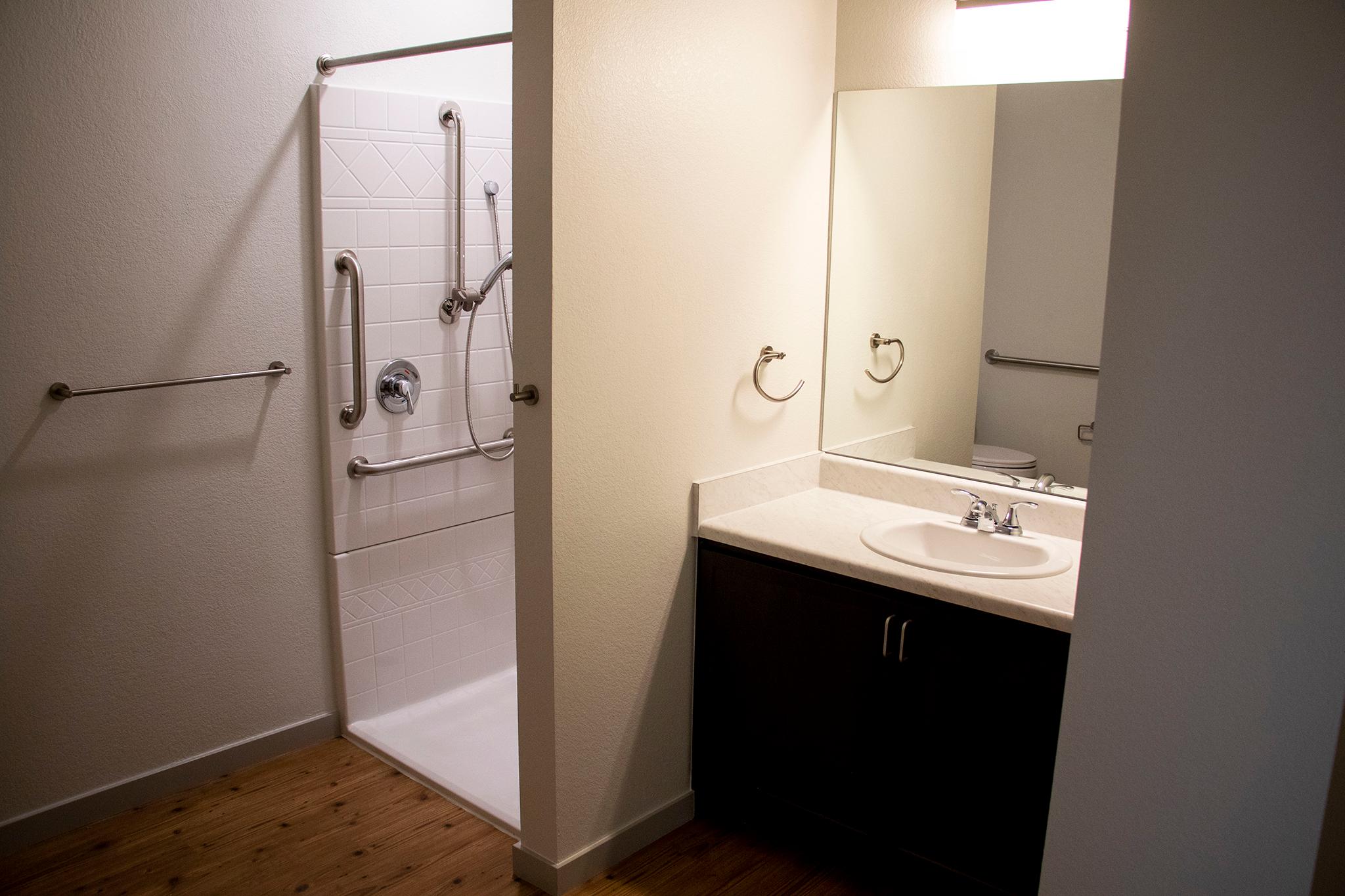
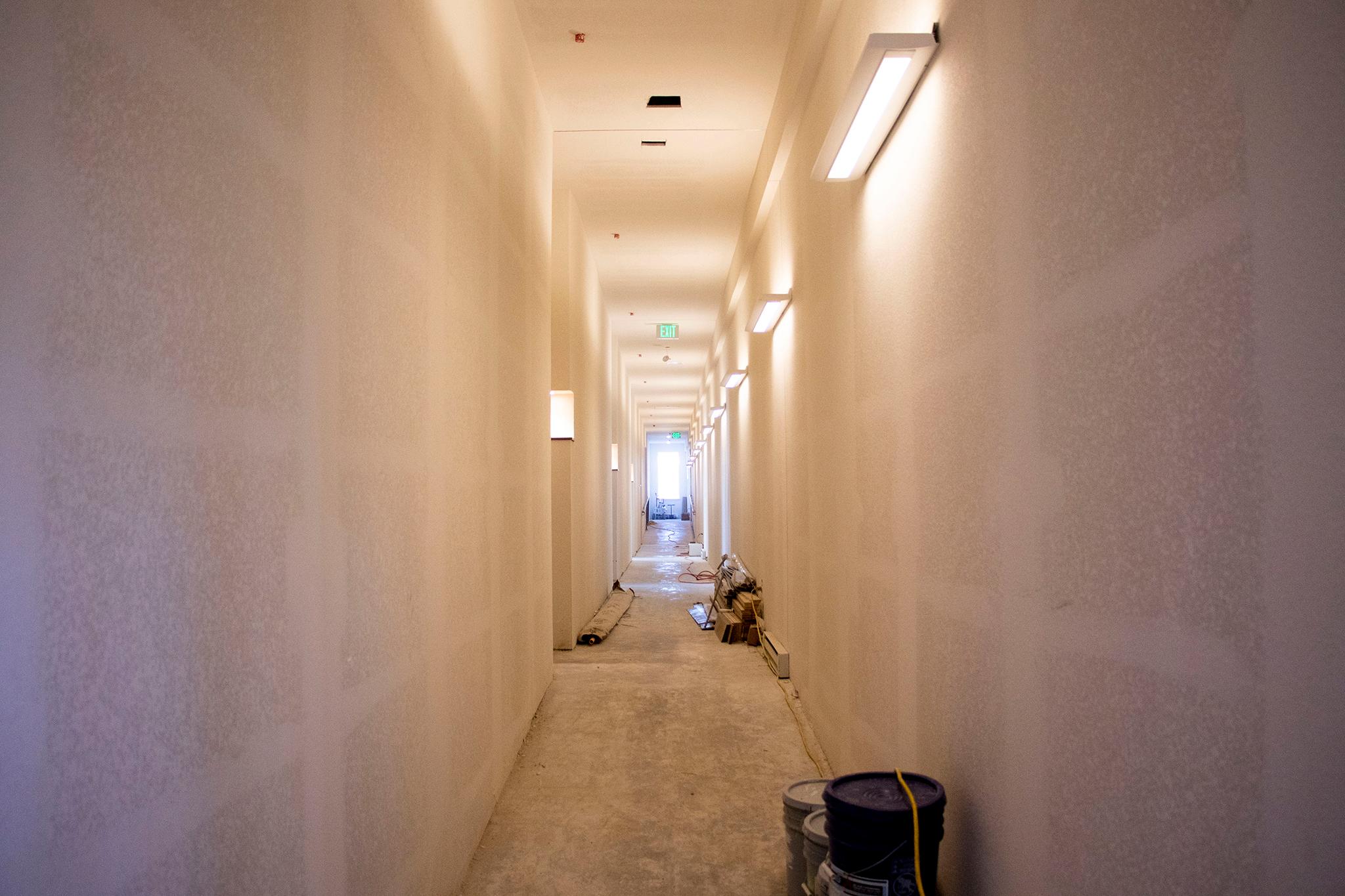
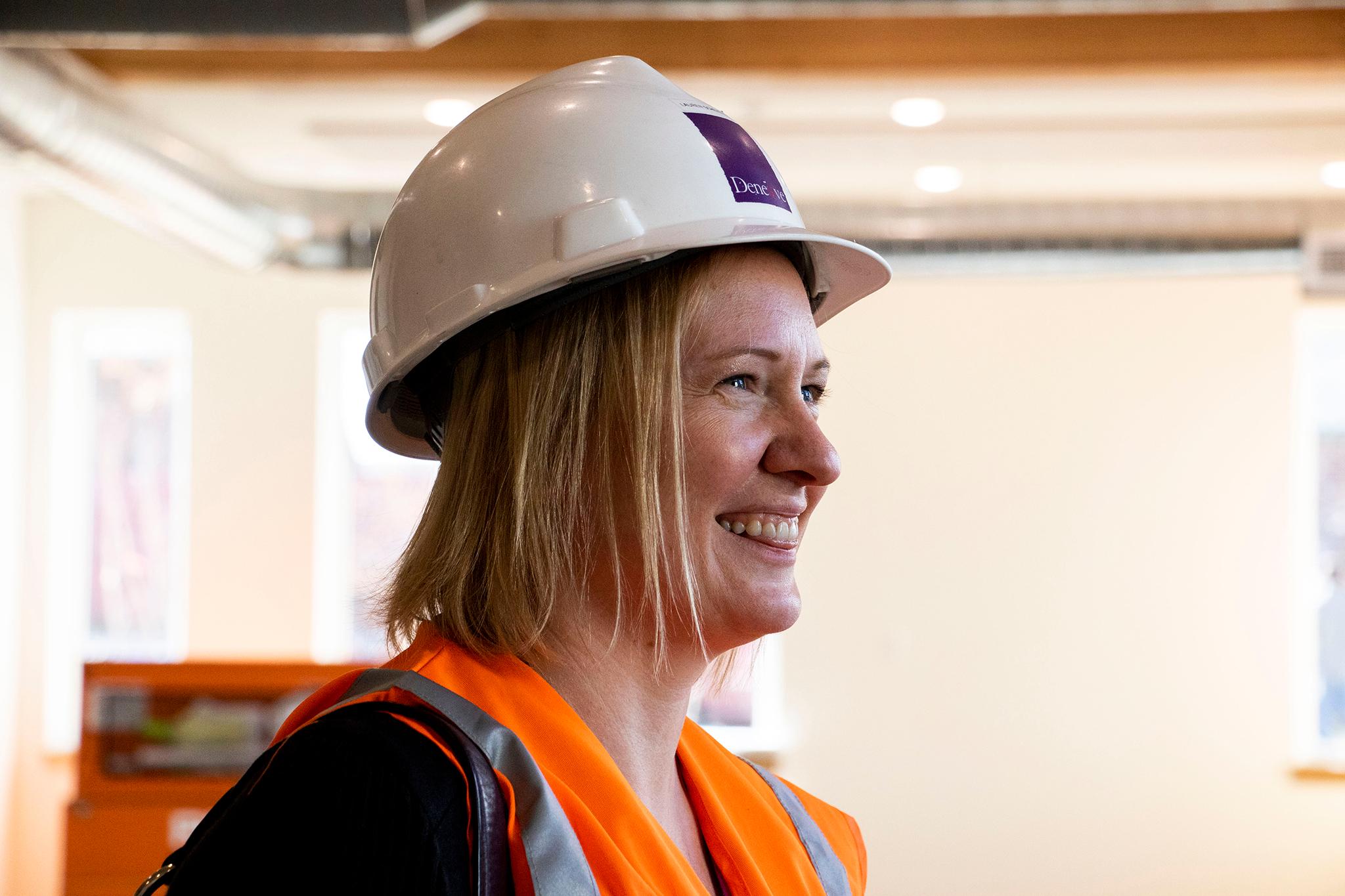
Laradon leased land for the project to Gorman & Company, an affordable housing developer that has been working across the county for three decades and arrived in Denver in more recent years. In addition to The Elisabetta's affordable rentals, seven for-sale affordable townhomes being built by Habitat for Humanity at the site are expected to be completed by spring, 2020.
The second stage is a 132-unit, four-story rental building next to The Elisabetta called The Stella, expected to break ground soon and be completed in 18 months. Laradon will provide support services for tenants in 16 Stella units set aside for very low-income people with disabilities, including some who have experienced homelessness. On Nov. 12, City Council will take up a proposal to issue $22 million in Private Activity Bonds to support low-income housing tax credits to help get The Stella built.
Decades ago, adults trained at Laradon worked in enterprises at the site, including a tile factory that shipped products across the country. These days, Laradon students are placed in hospitality, retail and other jobs at businesses throughout Denver and supported to be as independent as possible.
"Today, we're really focused on integrated ... employment," McNeill said. "The whole point is how we can build tools and skills and behaviors so they can be successful."
The Elisabetta and Stella are integrated as well.
"We're going to have people with and without disabilities," McNeill said. "It's a real community."

